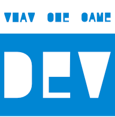Hammer_Deus said:
touching on design, art, and programming
That's not a job.
Companies hire designers in design disciplines, like level design, character design, and so on. Companies hire various art roles like concept artists, environment artists, modelers and riggers, UI art, animators. Companies hire for programming roles. Companies hire for QA roles. Companies hire for production roles.
Unfortunately the generic “lots of skills related to games” is a path lots of people want and are willing to pay schools to teach them, even though it isn't directly useful in the industry. The schools will happily take the money and teach the curriculum the students asked for, with teachers often knowing it isn't going to lead directly to a job. Most employers I know, and myself personally, prefer schools that focus on a single discipline and then offer exposure to the rest, like a CS degree plus a game development certificate, or a BFA in digital art plus a game development certificate, or similar. But you can't change the past.
Game studios have openings for entry-level design positions, although they're rare relative to other positions. A single designer might be working with 10 programmers, 5 artists, 7 animators, 25 QA, and a few other roles. Some very small studios and startups do want the background you've had, a lot of general topics who can help in multiple areas, so apply there too.
Apply for the jobs you are looking for. If you like the exposure you had to programming and want to do that, look for jobs as an entry level programmer. If you like the exposure you had to art disciplines (not sure if modeling, texturing, animating, UI, or what) go for an art discipline. If you prefer the design tasks you did, look for level design, character design, and associate/assistant game design jobs. If you liked the coordination aspects, look for associate/assistant producer roles.
Hammer_Deus said:
Can anyone give me some insight as to what employers are looking for in new hires who have recently graduated?
Regardless of whatever role you end up in, the expectations at the junior level are the same.
You are seen as a raw beginner in the industry. You will require training and handholding. You're expected to know enough from your schooling and background that you can begin to do the job with some guidance, but that you're still learning the craft.
Do your best. Show up and work hard. Don't break things too much (you're expected to break things occasionally) and try to produce and generate more than the costs you cause. They expect you'll take time and effort for training, and that after a few months you'll start being useful to the project.








